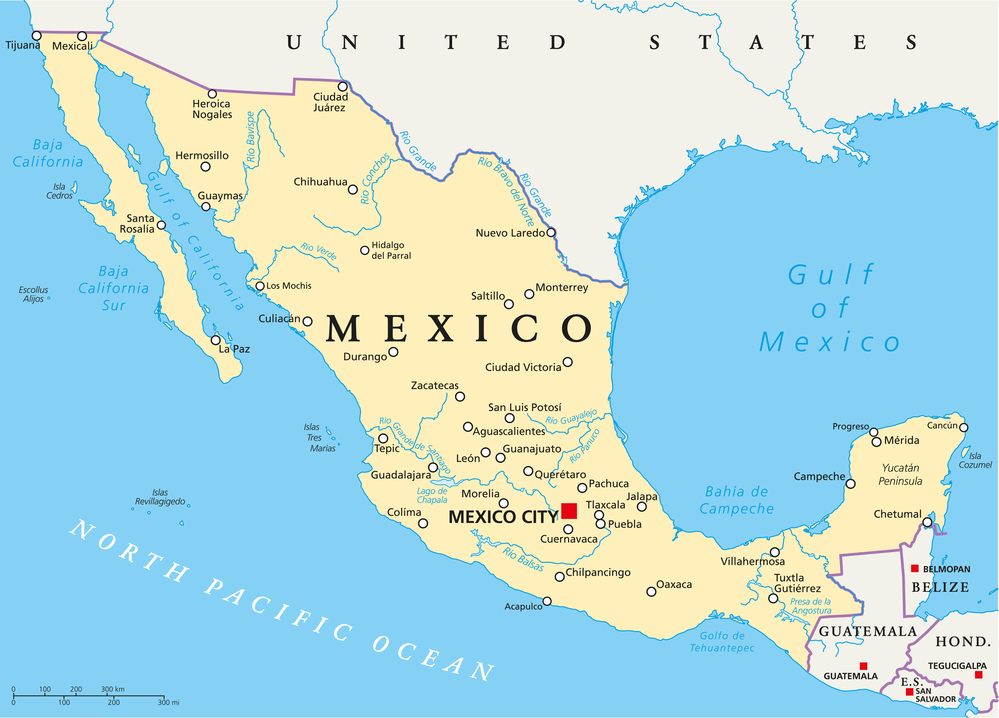Russian President Vladimir Putin has been invited to Mexico to attend the inauguration of the new Mexican President, Claudia Sheinbaum, on October 1. The invitation is likely to be handed to another senior Russian official, possibly Russia’s Foreign Minister, Sergey Lavrov, to attend on Putin’s behalf, however it does showcase the growing discomfort of the West’s attempts to isolate Russia in global terms.
Sheinbaum is Mexico’s first woman President, and has responded after Putin sent her a congratulatory telegram on winning the Mexican Presidential elections in June. Putin had praised Mexico as a traditionally friendly Russian partner in Latin America, and said he expected steps by the new Mexican president will help develop constructive cooperation between the countries. The move is expected to irritate Mexico’s neighbour, the United States, however may now open the door for a quick flurry of Russian diplomatic visits to the Central American region to take advantage of the opportunity presented by Sheinbaum.

Russia is a key international supplier of fertilizers to Mexico, accounting for nearly a quarter of all Mexican imports of nitrogen and mixed nitrogen, phosphorus, and potash fertilizers. Rolled steel, aluminium, and synthetic rubber are among the country’s other important imports from Russia.
With Russian non-energy exports to the European Union undergoing a significant decline due to sanctions and related political upheavals, Russian exporters and entrepreneurs have been busy finding alternative markets.
Mexico has close relations with Russia and was a significant participant in its Sputnik V COVID-19 vaccine scheme. Mexico’s main exports to Russia include tequila, beer, beef, and automobiles, while Mexico is Russia’s third biggest trading partner in Latin America. Russian multinational companies such as Power Machines operate in Mexico and Mexican multinational companies such as Grupo Omnilife, Grupo Maseca, Nemak, Cemex, Mabe, Katcon, Metalsa, and Gruma operate in Russia.
Mexico’s previous President, Andrés Manuel López Obrador announced in March 2022 that Mexico would not be participating in any economic sanctions against Russia and criticized the overseas censorship of Russian state media. There has been some talk of a Mexican free trade agreement with the Eurasian Economic Union, however, this would probably be a step too far for the neighboring United States, with the US being Mexico’s largest trade partner.
Nevertheless, Russia’s exports of goods to Mexico increased by more than 70% during 2023, according to figures released by the Bank of Mexico, showing a bilateral trade volume of about US$2.7 billion. With Russian diplomats sure to attend Sheinbaum’s inauguration, discussions will undoubtedly take place on the sidelines as how to improve this, while low-key meetings with leaders from other countries also cannot be ruled out.
There are some interesting additional pointers towards increasing bilateral ties. Since 2023 the number of Russians with diplomatic accreditation in Mexico has grown by more than 60%. The current number of Russian diplomats in Mexico is unprecedented, According to the Mexican Foreign Ministry, there are 85 diplomats accredited to the Russian embassy in Mexico City, a considerable increase compared to 32 approximately a year ago.
Mexico has a significant economy with abundant natural resources and is an important player in the energy industry. Establishing stronger economic ties with Mexico would provide Russia with opportunities for trade, investment, and resource access. Russia also views Mexico as strategically important, whether in terms of military cooperation, access to strategic locations, and as part of its broader global development strategy.
Further Reading
Russia – Cuba 2024 Trade & Development

 Русский
Русский













